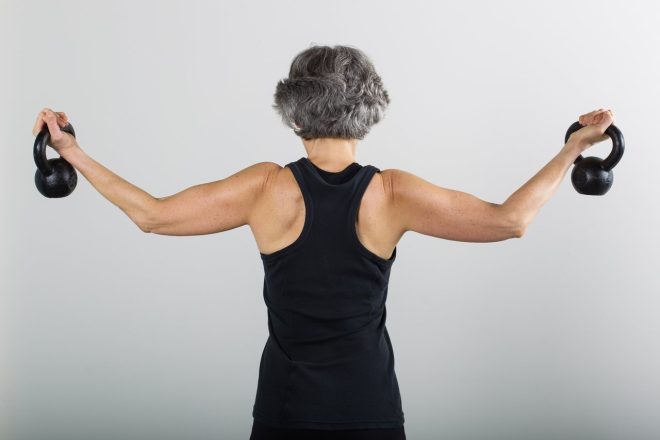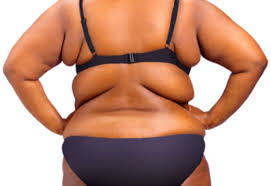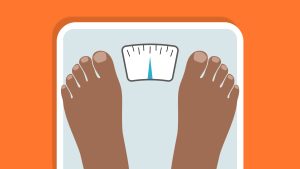
Why Is It Harder to Lose Weight as You Get Older?
You’re healthy, you exercise regularly, and you’re doing everything else right, but the scale seems stuck. Sound familiar?
For many women in their 40s, 50s, and beyond, losing weight can feel like an unwinnable battle. What worked in your 20s doesn’t work so well anymore, and it’s tough when your weight refuses to budge. Wearing your favorite jeans is just part of life; extra pounds can affect your energy levels, mood, and confidence all day long.
But here’s the thing: it’s not about working out or cutting calories. Your body is going through changes that make it harder to lose weight, and previous workouts may not be enough.
Here’s why it can be harder to lose weight as you get older:
- Metabolism slows – As you get older, your metabolism slows and your body burns fewer calories at rest.
- Hormonal changes – Hormonal fluctuations, especially around your body, can lead to fat storage and weight gain, especially around your belly.
- Muscle loss – As muscle mass decreases, your body’s ability to burn calories decreases.
- Lifestyle factors – Stress, lack of sleep, and changes in physical activity can make it harder to lose weight.
The good news? Once you understand why this is happening, you can adjust your approach and start seeing the results you deserve.
Let’s take a closer look at what’s happening and how to overcome these issues.

Slow metabolism
One of the biggest problems women face as they age is a slow metabolism. Metabolism is the process by which your body converts the food you eat into energy, and it plays a major role in how many calories you burn each day (even at rest).
This metabolic rate normally decreases as you age, starting in your 30s but becoming more pronounced in your 40s, 50s, and beyond.
Suddenly, the diet and exercise routine that kept you slim in your 20s doesn’t seem to be working. So what happened? It mostly comes down to muscle. As you age, you naturally lose muscle mass through a process called sarcopenia.
Muscle is metabolically active, meaning it burns more calories than fat, even when you’re not exercising. So when you lose muscle mass, your body needs fewer calories to function, and the calories you consume aren’t burned properly. So even if you haven’t made a big change in your eating habits, you’ll notice the scale slowly start to go up.
Another important thing to note is that when your metabolism slows down, your body becomes more efficient at storing fat.
This change was beneficial to our ancestors when food was scarce, but in today’s world, it means your body can store extra calories as fat, especially around your belly.
Anyway! This change doesn’t mean that weight loss is ineffective, but it does mean that you need to rethink your approach.
Simply cutting calories or increasing exercise may not be enough. You need to focus on strategies that will help you recover and even build muscle to keep your metabolism going.
Taking painkillers, prioritizing protein in your diet, and avoiding low-calorie intake all have significant effects.
By making these adjustments, you can combat the effects of a slow metabolism while still reaching your weight loss goals.
Hormonal changes
Hormonal changes can cause serious problems for women, especially those trying to control their weight as they age.
All four major hormones (estrogen, progesterone, testosterone, and cortisol) play important roles in how the body functions and stores fat. Losing weight can be nearly impossible, especially during pregnancy, when hormone levels change.
Here’s how it all affects your body and why it can make things worse as you age;
Estrogen
Estrogen is the main female hormone that affects how your body stores fat. As you get closer to menopause, estrogen levels start to drop, a change that causes changes in fat storage. Instead of distributing fat evenly, your body starts to hold on to fat around your belly, often resulting in unsightly “menopausal belly fat.”
Estrogen also helps regulate your body’s response to insulin, the hormone that controls blood sugar.
When estrogen levels drop, your body produces more insulin, which means your blood sugar doesn’t work properly.
This causes fat to accumulate, especially around your belly, making it harder to burn fat, even with proper diet and exercise.
Progesterone
Another important hormone, progesterone, also declines with age. Low progesterone levels are often associated with water retention and bloating, which can make you feel heavier and slower.
Although weight gain from progesterone changes is usually due to water retention rather than fat, it can still be frustrating and annoying, especially if you’re trying to lose weight.
In addition, progesterone also affects the quality of your sleep; low levels can cause insomnia or disrupted sleep, which can affect your ability to control hunger and satiety, making it harder for your health.
Testosterone
Yes, women also produce testosterone, which plays a key role in maintaining muscle mass and boosting metabolism.
As we age, testosterone levels decrease, leading to a loss of muscle mass. Since muscle burns more calories than fat, muscle mass means your metabolism slows down, making it easier to gain and maintain weight.
Low testosterone levels also lead to a lack of energy, which can reduce your ability to stay fit and cause you to gain extra weight over time.
Cortisol
Cortisol (the body’s stress hormone) increases with age, especially during menopause.
Chronic stress or increased levels of cortisol can cause your body to store fat as a means of survival, especially in the abdominal area.
High cortisol can also increase cravings for sugary and fatty foods, making it harder to resist unhealthy snacks.
When cortisol levels are consistently high, it can lead to what the body calls “stress belly,” fat that is hard to melt away even with exercise and a healthy diet.
Additionally, stress disrupts sleep, and poor sleep is associated with high cortisol levels, creating a vicious cycle that promotes weight gain.

How do these hormones work together?
As we age, the interaction of these hormones, especially the decrease in estrogen, progesterone and testosterone and the increase in cortisol, can make the process of losing weight difficult and stressful.
Each hormone plays a specific role in regulating how your body stores and burns fat and in controlling appetite, cravings and energy levels.
If you think your hormones are not working properly and are making it difficult for you to lose weight, you can have your doctor test you for hormones to confirm your condition. These tests can also help determine if you are entering perimenopause, which is when many hormonal changes usually begin.
Understanding these hormonal changes can help you adjust your weight loss strategy to focus on building muscle, managing stress, and maintaining sleep and healthy eating habits to support your body through these changes.
Muscle loss and less activity
As you age, your body naturally begins to lose muscle mass—a condition known as sarcopenia.
Muscle plays an important role in keeping your metabolism running smoothly because it burns more calories than fat, even at rest.
When you start losing muscle, your body needs fewer calories to function, making it easier to gain weight and harder to lose weight.
Unfortunately, this loss of muscle mass usually begins in your 30s and accelerates with age unless you take special steps to maintain or rebuild it.
To make matters worse, many women lose energy as they age. There could be many reasons for this: more work, more family responsibilities, or your body not being able to move as easily as it used to as you age.
Joint pain, stiffness, or fatigue may lead to more physical activity, and many women find themselves living a more active lifestyle as a result.
The combination of muscle mass and decreased activity slows your metabolism, making it easier to gain and maintain weight. It’s a gradual process, but over time, changes in body composition (less muscle, more fat) can lead to weight gain that’s hard to reverse.
Lifestyle and behavioral changes
As life gets more challenging, so does maintaining a healthy weight.
As the demands of work, family responsibilities, and personal obligations continue to increase, it’s easy to fall into habits that work against your weight loss.
One of the biggest culprits is stress. As stress levels increase, your body increases the amount of cortisol, a hormone that’s been linked to fat storage, especially around the belly.
This is your body’s way of responding to a threat, but in today’s world, these “threats” are often constant work, family stress, or money worries rather than real risks.
High cortisol levels not only reduce your body’s ability to store fat, especially in the belly area, but can also increase cravings for sugary foods or more calories. This leads to a vicious cycle of dieting that can lead to rapid weight gain.
Sleep is another area that is affected as we age, and it’s more related to weight than most people think.
Whether it’s the physical changes that come with aging, hormonal changes, or just a busy schedule, insufficient sleep can affect your metabolism equally.
When you don’t get enough sleep, your body produces more ghrelin, the hormone that signals hunger, and less leptin, the hormone that signals fullness.
The result is that you may overeat and crave junk food, especially at night. At the same time, disrupted sleep patterns can cause weight gain and make it harder to lose weight.
Then a busy lifestyle often leads to changes in eating habits. Over the years, you may have come to rely more and more on simple, time-saving recipes.
Unfortunately, many of these options are processed and calorie-dense, so you may be consuming more calories than you think.
Pre-made, ready-to-eat, and packaged snacks are often high in unhealthy fats, sugar, and salt, which not only lead to weight gain, but also make it harder to lose weight in return.
Also, because time is a precious commodity, many women find themselves skipping meals or eating on the go, which can lead to overeating or poor food choices when you’re hungry.
All of these factors—chronic stress, lack of sleep, and dietary changes—create a storm that makes it harder to lose weight as we age.
Managing weight loss as you age
It’s true that losing weight gets harder as you age, but it’s not impossible.
While factors like slower workouts, hormonal changes, and lifestyle changes can make the process more challenging, there are some strategies that can help you manage your weight and look your best.
Here’s an overview of what you can do:
Focus on strength training
One of the best ways to prevent age-related weight gain is to maintain and even build muscle mass through strength training.
You can help maintain and strengthen your muscles by incorporating strength training, such as weight training, resistance training, or aerobic exercise (such as squats, lunges, and pushups) into your routine.
This keeps your metabolism running smoothly and helps your body burn more calories, even at rest.
Strength train your muscles at least twice a week; target all the major muscle groups to keep them strong and active.
Strength training not only helps with weight control, it also improves bone density, balance, and overall strength, which are important as you age.
Eat foods high in protein
Protein is important when you’re working to build or maintain muscle. Protein supports muscle repair and growth, and it also helps you stay healthy longer, limiting overeating and snacking.
Including protein-rich foods like chicken, fish, eggs, and turkey in your diet, as well as legumes like lentils, chickpeas, and tofu, can help you meet your body’s needs.
For best results, try to spread your protein intake throughout the day; eat a little bit at each meal, rather than consuming it all at once.
This keeps your body constantly repairing and growing muscle.
Don’t forget to combine your protein with fiber-rich vegetables and whole grains, which help support digestion as well as control blood sugar and keep energy stable.
Stress management
Stress is one of the most important factors in weight gain, especially as we age. Chronic stress causes the release of cortisol, a hormone that promotes fat storage, especially around the belly.
To prevent this problem, it’s important to incorporate stress-reducing practices into your daily life.
Activities such as yoga, meditation, deep breathing, and even taking time to relax every day can help reduce cortisol production and prevent stress-related weight gain.
It’s not possible to eliminate stress completely (it’s impossible), but you can learn to manage it so it doesn’t affect your health.
By reducing your stress level, you can reduce the cravings and urge to eat that can cause you to gain weight.
Prioritize sleep
Good sleep is often the missing link in weight control. When you don’t get enough sleep or your sleep is interrupted, your hunger hormones (ghrelin and leptin) become out of balance.
Ghrelin (a hormone that stimulates appetite) increases, while leptin (a hormone that signals satiety) decreases. This lack of awareness can lead to overeating, especially high-calorie sweet foods.
In addition, inadequate sleep is associated with higher cortisol levels, which further contribute to weight gain. Aim for 7-9 hours of quality sleep each night to support your weight loss goals.
Create a bedtime routine that helps you wind down, such as turning off screens an hour before bed, creating a relaxing space, and going to bed at the same time every night.
Adequate sleep not only helps regulate hunger hormones, it can also improve your energy, mood, and overall health.

Stay active
As we age, it’s more important than ever to be active, but that doesn’t necessarily mean spending time at the gym. Regular exercise is important for burning calories, maintaining muscle mass, and improving cardiovascular health.
Find an activity that fits your lifestyle and interests—brisk walking, swimming, dancing, or gardening.
Even if you’re busy, try to incorporate movement into your routine—take the stairs, take a walk during your lunch break, or do a quick 10-minute workout at home.
Being active not only helps you burn calories, it also changes your body, boosts your mood, and improves your overall health.
The important thing is not to work your hardest, but to be consistent and move your body regularly in a way that makes you happy.
By focusing on these basics—strength training, a high-protein diet, stress management, good sleep, and regular exercise—you can develop a balanced and effective body for weight control as you age.
Although this process may require more than it did when you were younger, these strategies can help you get stronger, more powerful, and more in control of your health.
Control Your Weight Loss Journey
Losing weight as you age can seem like a struggle, but it’s important to remember that it’s not impossible. As your body changes, so should your approach to losing weight.
You can achieve your goals by taking care of your muscles, eating better, managing stress, getting enough sleep, and being active.
